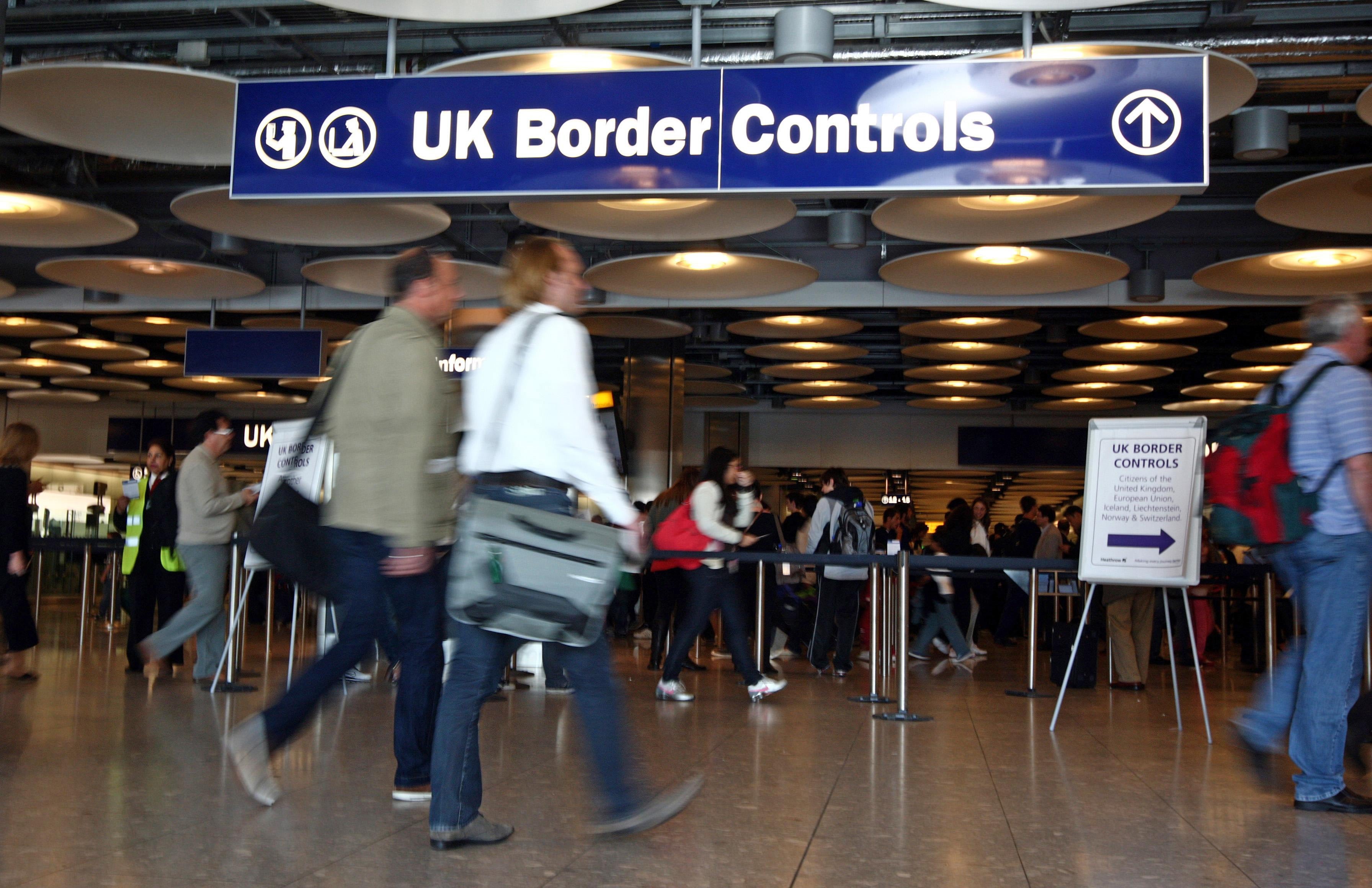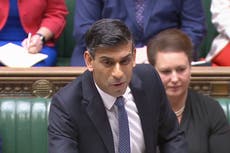Major disruption at Britain’s biggest airports as staff to strike for eight days over Christmas
‘Significant’ delays expected at Heathrow and elsewhere as Border Force staff walk out from 23 December
Britons face further travel chaos over the festive period after staff at UK’s largest airports voted for eight days of strikes over Christmas and the new year.
Border Force staff will walk out in a row over pay, pensions and jobs from 23 to 26 December and again between 28 and 31 December at Gatwick, Heathrow, Manchester, Birmingham, Glasgow and Cardiff.
It comes amid a raft of strikes set to hit festive travel, with industrial action organised by train, bus and road workers over Christmas.
The Public and Commercial Services Union (PCS) said around 1,000 officials at passport control would walk out in a push for a 10 per cent pay rise – with general secretary Mark Serwotka adding it would have a “significant impact” on Britons’ travel plans.
At busier airports with constrained space – particularly Heathrow – long queues could lead to passengers being held on planes rather than disembarking. This could trigger delays for incoming and departing aircraft, putting pressure on a system that has little spare capacity and possibly leading to cancellations and diversions.
If widespread disruption did happen it would cost airlines millions of pounds. Besides providing yet another hurdle for British travellers heading away for Christmas, the strikes could also deter inbound tourism and put off late bookers considering a festive break in the UK.
The government has already confirmed that it would bring in the army to work at ports and airports to cover for the Home Office’s Border Force staff over the festive period.
Mr Serwotka has held meetings with ministers but the union boss said they were refusing to increase a two per cent pay rise offer. “They keep saying their door is open, but ... there’s nothing behind it.”
The PCS leader said some government staff on low pay had been forced to use food banks. “They are desperate,” he said. “The government can stop these strikes tomorrow if it puts money on the table.”
A Home Office spokesman said the government was “disappointed” at the union’s decision and warned passengers that they should prepare for disruption – but said “robust plans” were in place to minimise travel turmoil.
Transport minister Baroness Vere said on Tuesday that the army personnel have already received training and would be deployed at ports and airports under the “military aid to the civil authorities” (Maca) policy.
But the PCS leader warned the government against bringing in the military to “strike-break”, saying they could not do the job after only a “few days” of training.
“We would expect that it would cause significant disruption and delays at the airports,” said Mr Serwotka, who added public “anger” at travel chaos should be directed at “Rishi Sunak, [chancellor] Jeremy Hunt and the Tory government”.
A spokesperson for Heathrow – where strikes will impact terminals 2, 3, 4 and 5 – said immigration and customs checks “may take longer during peak times on strike days”.
The spokesperson also advised passengers to check their flight status with their airline before travelling on the eight strike days. “We encourage all parties to resolve this dispute quickly,” they said.
Border staff at the Port of Newhaven will join strike action beginning on 23 December. The union has already revealed strikes at the Department for Work and Pensions (DWP), the Highways Agency and among driving examiners this month.
Mr Serwotka warned that it was only the “opening shots” of the dispute, suggesting that immigration staff at the Port of Dover could also walk out. The PCS represents around 15,000 Home Office staff in all.
More than 100,000 PCS members in more than 200 government departments and other public bodies voted to take strike action last month, demanding a 10 per cent pay rise and no cuts to redundancy terms. “The dispute will escalate unless the government puts money on the table,” said the union boss.

It comes as train drivers at 12 rail companies have voted overwhelmingly to continue strike action in a long-running row over pay. Aslef said turnouts were “huge” and showed how angry its members are.
Meanwhile, it emerged that NHS and other public sector workers could face additional restrictions on their right to strike after Mr Sunak declared his intention to impose “tough” new strike laws at PMQs.
No 10 aides did not rule out the possibility that this could include a ban on walkouts by ambulance staff and other emergency workers – or the extension of proposed minimum service level legislation to cover the whole public sector.
The government promised legislation to enforce minimum service levels during strikes – but a bill to introduce the requirement in the transport sector only is yet to start its progress through the Commons.
Asked if Britain was heading for strike “gridlock” this winter, the prime minister told ITV News that his government had approached negotiations in “the spirit of reasonableness” – pointing out that some public sector pay recommendations were higher than pay rises in the private sector.
He added: “If union leaders are not going to be reasonable, then my priority is always going to be to protect people’s safety and to minimise disruption ... I will do whatever I need to do to ensure that that’s what we can make happen.”
TUC general secretary Frances O’Grady accused Mr Sunak of taking “cheap political shots” and threatening the right to strike after his comments on Wednesday.
“The right to strike is a fundamental British liberty,” she said. “Rather than attempting cheap political pot shots, the government should be getting around the table and negotiating with unions about pay.”
Labour will oppose the “unworkable” minimum service levels legislation but a spokesperson would not commit to Sir Keir Starmer repealing it if he entered No 10.
Asked what action Labour would take, the spokesperson said the party would repeal the “archaic” 2016 laws brought in under the Tories – something which could make it easier for strike ballots to take place.
Join our commenting forum
Join thought-provoking conversations, follow other Independent readers and see their replies
Comments


Bookmark popover
Removed from bookmarks